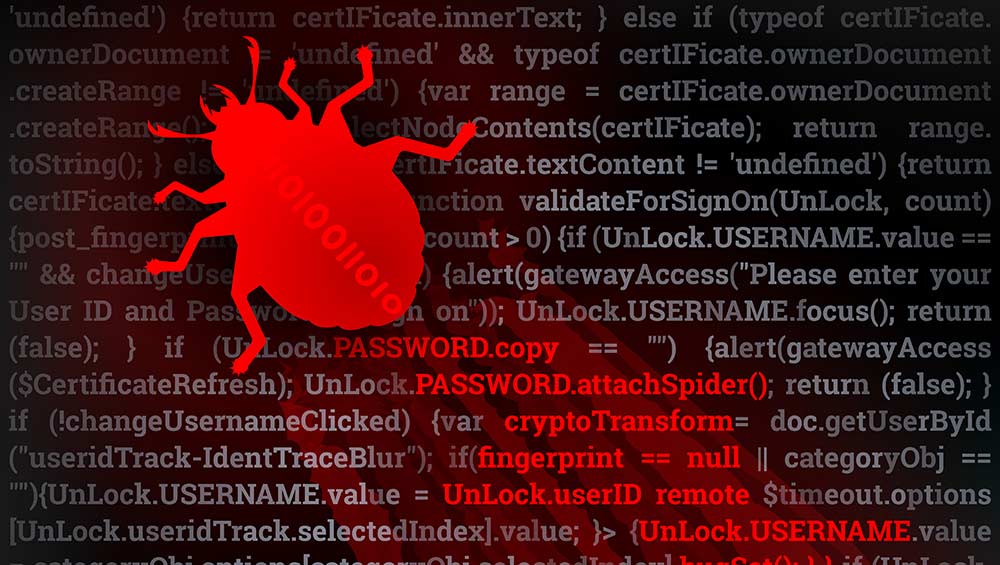Fake WHO email about Ebola spreads malware
Advice email from “World Health Organization” harbours its own virus


An IT security company has uncovered a malware-laden email that claims to come from the World Health Organisation that is designed to prey on fears over the Ebola virus.
According to researchers at Trustwave, the malware threat disguises itself in an email from the World Health Organization (WHO), complete with an attached file.
The message reads that it has information on how to prevent the Ebola spread in the file. However, the file is in fact an executable that installs the DarkComet Remote Access Trojan (RAT).
The Trojan makes use of its heavily obfuscated script to run undetected by antivirus software. This then creates a randomly named folder in the Windows Application Data drive and copies all of its component files into that folder.
As well as keylogging, the Trojan can capture webcam images and sounds. It can remotely access the desktop as well as uploading and executing other files.
The malware also gathers system information, modifies system host files, executes shell commands, steals passwords and torrent files, lists processes and runs remote scripts.
The Trojan then sends all this information to a remote server. At present, researchers said they have only seen one sample from the campaign so far.
Get the ITPro daily newsletter
Sign up today and you will receive a free copy of our Future Focus 2025 report - the leading guidance on AI, cybersecurity and other IT challenges as per 700+ senior executives
"At this time we don't have reason to believe it is a widespread campaign. The address it was sent to was an old honeypot address, so it's not exactly targeted either," the researchers said in a blog post.
"These facts taken together suggest a low volume campaign (sent to whatever address list the spammer is using) in an attempt to infect random users in the hope of gaining some data that can be used or sold."
The firm said another campaign pretended to be from the Mexican Government with an advisory of the Ebola situation in Mexico. Trustwave said just last week the United States Computer Readiness Team (US-CERT) published an advisory warning users of scams and spam campaigns using the Ebola virus as a social engineering theme.
Rene Millman is a freelance writer and broadcaster who covers cybersecurity, AI, IoT, and the cloud. He also works as a contributing analyst at GigaOm and has previously worked as an analyst for Gartner covering the infrastructure market. He has made numerous television appearances to give his views and expertise on technology trends and companies that affect and shape our lives. You can follow Rene Millman on Twitter.
-
 CronRat Magecart malware uses 31st February date to remain undetected
CronRat Magecart malware uses 31st February date to remain undetectedNews The malware allows for server-side payment skimming that bypasses browser security
By Rene Millman
-
 Mekotio trojan continues to spread despite its operators’ arrests
Mekotio trojan continues to spread despite its operators’ arrestsNews Hackers have used it in 100 more attacks since arrests
By Rene Millman
-
 “Trojan Source” hides flaws in source code from humans
“Trojan Source” hides flaws in source code from humansNews Organizations urged to take action to combat the new threat that could result in SolarWinds-style attacks
By Rene Millman
-
 What is Emotet?
What is Emotet?In-depth A deep dive into one of the most infamous and prolific strains of malware
By Praharsha Anand
-
 Fake AnyDesk Google ads deliver malware
Fake AnyDesk Google ads deliver malwareNews Malware pushed through Google search results
By Rene Millman
-
 Hackers use open source Microsoft dev platform to deliver trojans
Hackers use open source Microsoft dev platform to deliver trojansNews Microsoft's Build Engine is being used to deploy Remcos password-stealing malware
By Rene Millman
-
 Android users told to be on high alert after Cerberus banking Trojan leaks to the dark web
Android users told to be on high alert after Cerberus banking Trojan leaks to the dark webNews The source code for the authenticator-breaking malware is available for free on underground forums
By Sabina Weston
-
 Qbot malware surges into the top-ten most common business threats
Qbot malware surges into the top-ten most common business threatsNews An evolved form of the banking Trojan was distributed by number one-ranking Emotet in a campaign that hit 5% of businesses globally
By Keumars Afifi-Sabet

